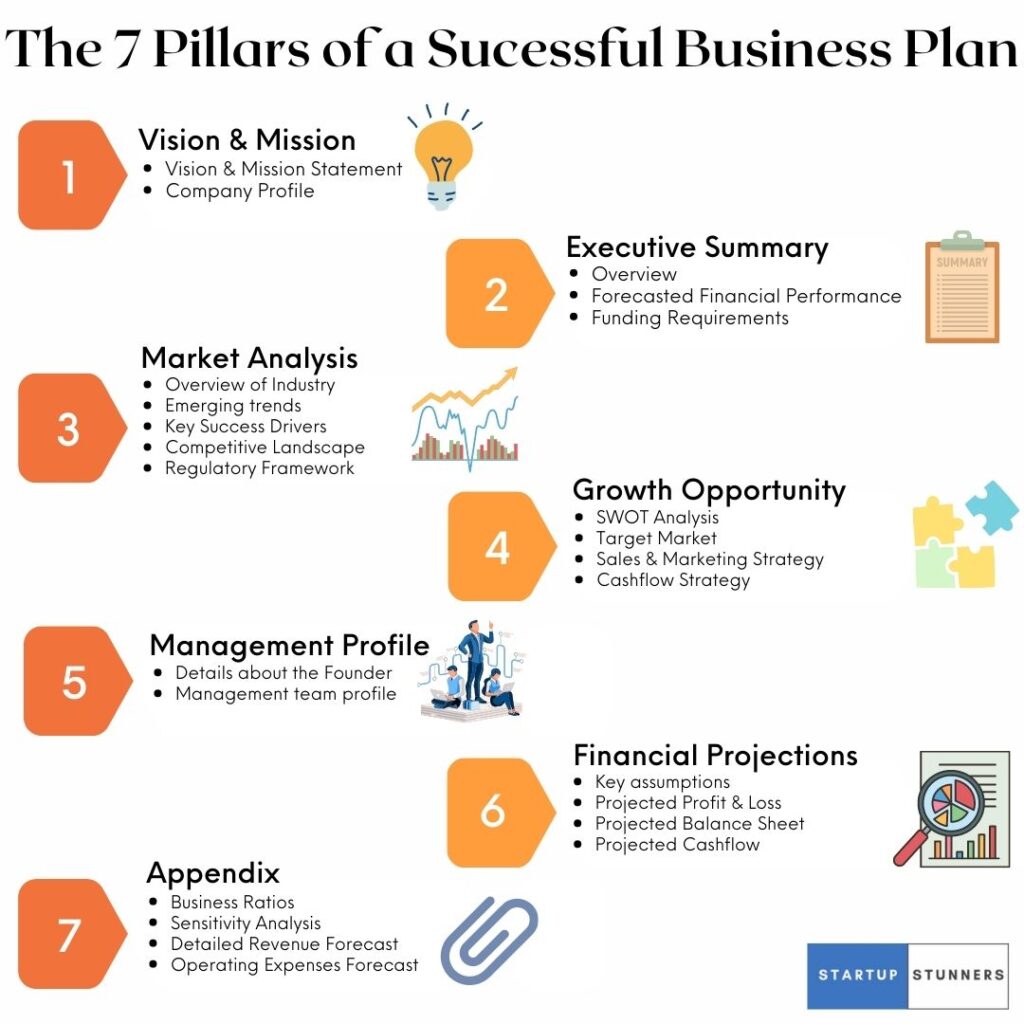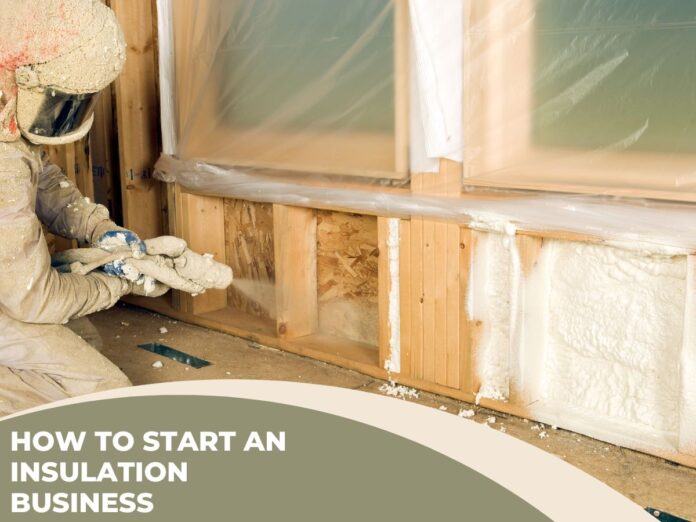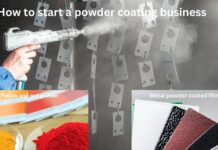Looking to start a new business venture in the USA that’s both profitable and in demand? One industry that’s on the rise is spray foam insulation. The demand for quality insulation is increasing as more homeowners and businesses seek energy-efficient solutions. Starting your own spray foam insulation company can be a great way to capitalize on this growing trend. However, without proper guidance, getting started can be overwhelming.
We have compiled this comprehensive guide to assist you in starting a successful insulation business. Whether you’re a seasoned entrepreneur or a newcomer to the business world, our guide will walk you through the necessary steps to get started. Let’s begin your journey towards a successful and lucrative business!
An Overview of the Insulation Industry
An insulation company’s primary goal is to improve energy efficiency by preventing heat transfer between the inside and outside of a building. Insulation can help reduce energy consumption and heating and cooling costs by reducing heat transfer.
Insulation for homes and businesses comes in a variety of forms, including:
- Spray Foam Insulation: This type of insulation is a popular choice for its versatility and efficiency. Spray foam insulation is installed with the help of a specialized machine that combines two chemical components to produce a foam that expands and hardens, filling gaps and creating an airtight seal.
- Fiberglass Insulation: This type of insulation is made from glass fibers and is commonly used in residential and commercial construction. It is a cost-effective option for many applications and can be installed in batts or blown-in.
- Cellulose Insulation: Another popular option for residential and commercial applications, cellulose insulation is made from recycled paper and treated with fire retardants. It is more environmentally friendly than fiberglass insulation and can be blown in to fill gaps and cavities.
- Radiant Barrier Insulation: This type of insulation is intended to reflect heat radiation away from a structure, thereby keeping it cool in the summer and lowering cooling costs.
Insulation has numerous advantages for both homes and businesses, including:
- Energy Efficiency: Insulation prevents heat transfer between the inside and outside of a structure, lowering energy consumption and heating and cooling costs.
- Comfort: By keeping the building cooler in the summer and warmer in the winter, insulation can help maintain a comfortable indoor temperature.
- Noise Reduction: By absorbing sound and reducing sound transmission, insulation can help reduce noise levels.
- Environmental Advantages: Insulation can help reduce greenhouse gas emissions and environmental impact by lowering energy consumption.
For several reasons, spray foam has become a popular insulator for entrepreneurs. The following are some of the primary benefits of starting a spray foam insulation business:
- High Profit Margins: When compared to other types of insulation, spray foam insulation has high profit margins. This is due to the fact that it is a specialized service that necessitates skilled technicians and specialized equipment, allowing for higher pricing and profits.
- Rising Demand: Because of increased awareness of energy efficiency and sustainability, demand for spray foam insulation is rising. Spray foam insulation is an effective solution for homeowners and businesses looking to reduce their energy consumption and costs.
- Versatility: Spray foam insulation is suitable for a wide range of applications, including new construction, renovations, and retrofits. It can be used on walls, roofs, attics, and crawl spaces, making it a versatile solution for a variety of projects.
- Durability: Spray foam insulation is a long-lasting and durable solution. It adheres tightly to surfaces, filling gaps and creating an airtight seal that can last for decades.
- Spraying is a good way to keep your health and safety in check. It is made of non-toxic materials and does not emit harmful chemicals or fibers into the air, making it an excellent choice for health-conscious homeowners and businesses.
- Green and Sustainable: Spray foam insulation is also a green and sustainable option. It contributes to lower energy consumption and greenhouse gas emissions, making it a long-term solution for a more environmentally friendly future.
Starting an Insulation Company – A Step-by-Step Guide
Quick Facts
| Industry trend | Growing |
| Investment range | $50,000 – $150,000 |
| Revenue potential (annual) | $150,000 – $500,000 |
| Commitment | Full-time |
| Time to build | 3-6 months |
| Profit potential (annual) | $50,000 – $200,000 |
Step 1: Market Overview
It is critical to have a thorough understanding of the US insulation market before starting a spray foam insulation business. The North America industrial insulation market size was estimated at USD 2.14 billion in 2022 and is projected to expand at a compound annual growth rate (CAGR) of 3.7% from 2023 to 2030.
This expansion is being driven primarily by rising demand for energy-efficient buildings and homes, which has resulted in an increase in retrofit and renovation projects. Furthermore, government regulations and incentives aimed at reducing energy consumption have fueled the insulation market’s growth.
Due to their colder climates, the Northeast and Midwest regions of the United States have the highest demand for insulation, while the Southwest and West regions have a lower demand due to their warmer climates. However, as energy efficiency and sustainability become more important to consumers and businesses, demand for insulation is expected to rise across the board.
The insulation market in the United States is also highly competitive, with many established players and an increasing number of new entrants. This means that thorough market research is required to identify the target market, competition, and potential customers.
Step 2: Create a Business Plan
Before starting an insulation business, it is critical to create a thorough business plan. A business plan aids in the definition of the company’s goals and objectives, the identification of its target market, the development of marketing and sales strategies, the creation of a budget, and the establishment of financial projections.

A well-crafted business plan can also aid in obtaining funding from investors or lenders. Lenders and investors are more likely to back a company that has a clear and concise business plan outlining its potential for profitability and growth.
A business plan also serves as a road map for the business owner to follow. It aids in keeping the company on track and accountable for achieving its goals and objectives. It also enables regular monitoring and evaluation of the company’s progress, which can aid in identifying areas for improvement and potential roadblocks.
Startup Stunners has been providing top-notch business plan writing services for years, and we’re ready to help you create a comprehensive, effective plan that will propel your business forward. Our team of experts is committed to assisting you in achieving your business objectives and obtaining funding from banks, grants, or other sources. We’re here to help you succeed whether you’re a beginner, entrepreneur, or small business owner. Don’t put it off any longer; visit startupstunners.com/contact-us/ today and let us lead you to success!
Step 3: Investment
Starting a spray foam insulation business necessitates a substantial initial investment in equipment, materials, marketing, and labor. The following are some of the major expenses associated with starting a spray foam insulation business:
- Equipment Costs: One of the biggest expenses for starting a spray foam insulation business is the cost of equipment. A spray foam insulation machine, compressor, hoses, and other tools and accessories are included. The cost of equipment varies depending on its quality and size, but a basic startup kit can range from $15,000 to $30,000.
- Material Costs: Material costs, in addition to equipment costs, are a significant expense. Polyurethane foam is the primary material used in spray foam insulation, and it can range in price from $0.50 to $3 per board foot, depending on the type and quality of the foam. Protective gear such as masks, gloves, and goggles are also available.
- Marketing and Advertising Expenses: In order to promote its services and reach potential customers, a spray foam insulation company will need to invest in marketing and advertising. Creating a website, running online ads, printing brochures, and attending trade shows are all examples of this. Marketing and advertising costs vary depending on the strategies used, but it is critical to budget for these costs in order to reach potential customers and grow the business.
- Employee Salaries: Depending on the size and scope of the business, hiring employees to assist with installation and other tasks may be necessary. Employee salaries will vary depending on the location of the business and the level of experience and expertise required, but it is critical to include labor costs when developing a business budget.
Step 4: Obtaining Licenses and Permits
Starting a spray foam insulation business in the US requires obtaining the necessary licenses and permits to operate legally. Specific requirements may differ by state, but the following are some of the most common licenses and permits required:
- Business License: In order to operate legally, all businesses must obtain a business license. The process and requirements for obtaining a business license differ depending on the state and municipality, but it usually involves filling out an application and paying a fee.
- Contractor License: Depending on the state and scope of work, spray foam insulation installations may require a contractor license. Contractor license requirements vary by state, but typically include passing an exam, meeting education and experience requirements, and paying a fee.
- Environmental Permits: Because of the potential impact on air quality and hazardous waste, spray foam insulation may require environmental permits. These permits are typically issued by state or local environmental agencies.
- Building Permits: Spray foam insulation installations may require building permits to ensure compliance with building codes and safety regulations. Building permit requirements differ depending on the state and municipality.
- Insurance: Spray foam insulation companies are also required to carry liability and property damage insurance. Insurance requirements vary by state, but typically include general liability insurance, worker’s compensation insurance, and automobile insurance.
- Entrepreneurs must research and understand the specific licenses and permits required in their state and municipality to ensure that their business is operating legally and compliantly.
Step 5: Think about Profitability
The profitability of a spray foam insulation business is affected by a variety of factors, including the local market, competition, pricing strategy, and costs. Consider the following factors when assessing the potential profitability of a spray foam insulation business:
- Profit Margins on Average: Profit margins for a spray foam insulation company can range between 30% and 50%, depending on factors such as pricing strategy and costs. Offering additional services or specializing in a specific type of insulation can result in higher profit margins.
- Profitability Influencing Factors: A spray foam insulation business’s profitability can be influenced by a variety of factors. For example, the level of competition in the local market can impact pricing and revenue. Furthermore, the location of the business can have an impact on the costs of materials, labor, and overhead. When developing a pricing strategy and a business plan, it is critical to carefully consider these factors.
- Increase Profitability: There are several ways to increase a spray foam insulation business’s profitability. To increase revenue, one option is to offer additional services such as air sealing or weatherization. Another way to cut costs is to negotiate lower prices for materials or equipment, or to improve operational efficiency. It is also critical to review and adjust pricing strategy on a regular basis to ensure competitiveness and profitability.
Step 6: Marketing and Promotion
Marketing and advertising are critical components of any business, including spray foam insulation. Consider the following strategies for promoting and growing your business:
- Create a Marketing Strategy: A well-planned marketing strategy can assist you in reaching out to potential customers and generating leads. This may include a combination of online and offline tactics, such as search engine optimization (SEO), pay-per-click (PPC) advertising, social media marketing, email marketing, direct mail campaigns, and networking.
- Build a Website: A professional website is essential for any business, and can serve as a central hub for your marketing efforts. Your website should be mobile-friendly, simple to use, and contain clear information about your services, pricing, and contact information.
- Use Social Media: Social media platforms such as Facebook, Twitter, and LinkedIn can be useful for increasing brand awareness and engaging with potential customers. Consider posting helpful tips and resources related to insulation, and showcasing your work with before-and-after photos.
- Leverage Customer Reviews: Positive customer reviews and testimonials can be a powerful marketing tool. Customers should be encouraged to leave reviews on your website and social media pages, and these reviews should be considered for inclusion in marketing materials.
- Attend Trade Shows and Conferences: Attending industry events can help you network with potential customers and industry peers, and stay up-to-date on industry trends and best practices.
- Provide Referral Incentives: Referrals from friends and family can be a valuable source of business for any service-based business. Consider rewarding or discounting customers who refer new customers to you.
- Collaborate with Others: Consider collaborating with other home improvement or construction-related businesses to cross-promote services and broaden your reach.
You can effectively promote your spray foam insulation business and attract new customers by developing a comprehensive marketing strategy and employing a variety of tactics.
Conclusion
For entrepreneurs with a passion for home improvement and a commitment to quality service, starting a spray foam insulation business can be a profitable and rewarding venture. You can successfully launch and grow your business by following the steps outlined in this post, which include conducting market research, developing a business plan, obtaining the necessary licenses and permits, and developing a marketing strategy.
With a focus on quality work, exceptional customer service, and a commitment to professionalism, you can establish a strong reputation in the local market and build a loyal customer base. You can ensure the long-term success and profitability of your spray foam insulation business by constantly evaluating and adjusting your strategy based on market conditions and customer feedback.
Frequently Asked Questions
What is spray foam insulation, and how does it work?
Spray foam insulation is a type of polyurethane foam insulation that is applied with a special spray foam machine. The foam expands and hardens, forming an airtight barrier that aids in preventing heat loss in the winter and gain in the summer.
How much does it cost to start a spray foam insulation business?
The cost of starting a spray foam insulation business varies greatly depending on factors such as business size, equipment costs, material costs, and marketing expenses. However, entrepreneurs can expect to invest tens of thousands of dollars in equipment and supplies.
Is spray foam insulation business profitable?
Yes, the spray foam insulation industry can be profitable, with many companies reporting profit margins of 30-50%. However, factors such as competition, location, pricing strategy, and cost control can all have an impact on profitability.
Do I need any licenses or permits to start a spray foam insulation business?
Yes, spray foam insulation companies typically need a number of licenses and permits, including a contractor’s license, a business license, and environmental permits. These requirements may differ depending on the state and local jurisdiction.
How can I market my spray foam insulation business?
Marketing strategies for a spray foam insulation company may include creating a website, using social media, attending trade shows and conferences, leveraging customer reviews, and collaborating with other companies. A well-planned marketing strategy can assist in reaching out to potential customers and generating leads.






